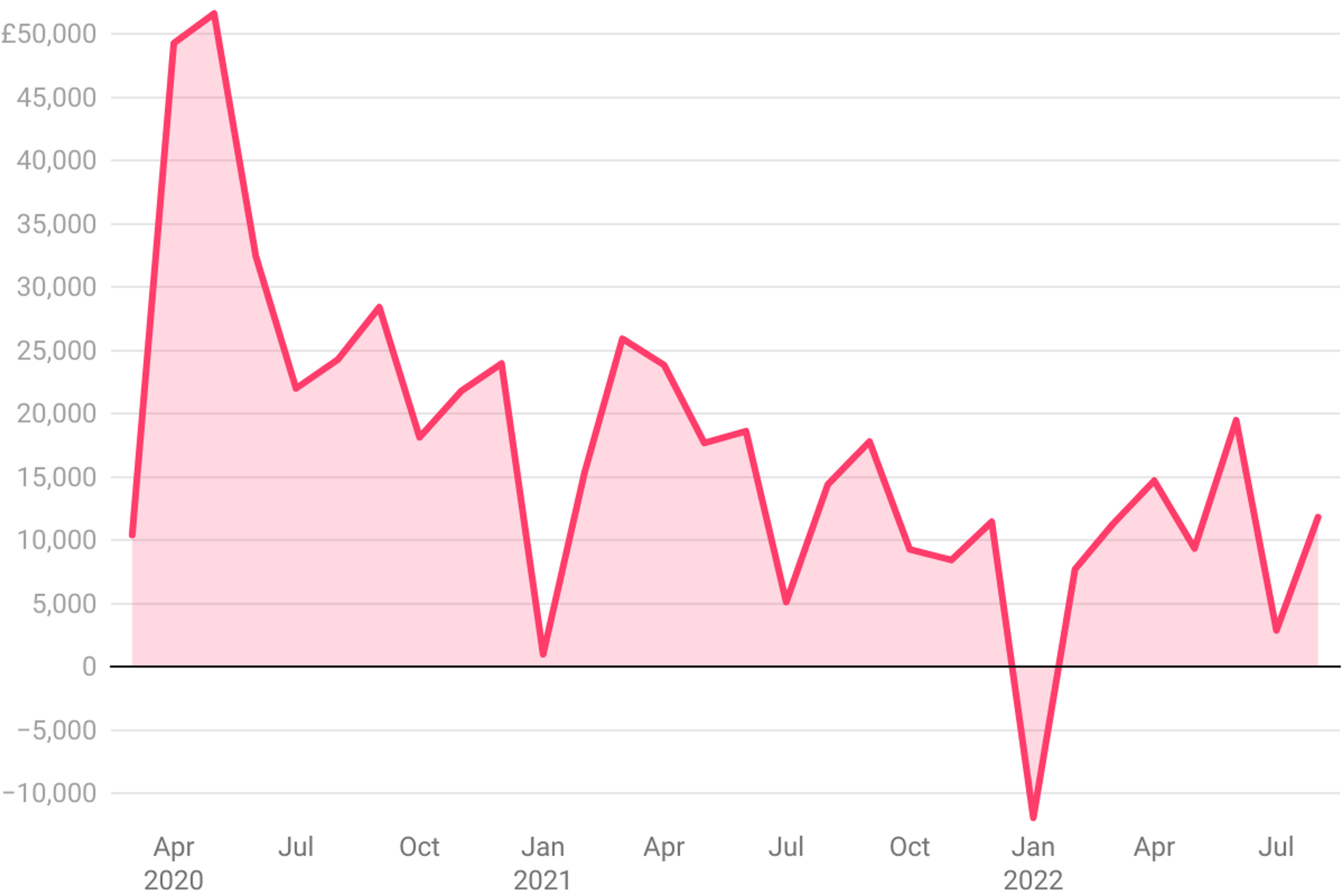Are pension funds in trouble?
- By
- Murray Humphrey

Last week saw a sizeable drop in the value of UK government bonds, sparking fear in some about the security of defined benefit pensions.
Thankfully, Penfold customers have nothing to worry about. The impact of yesterday’s bond crash mainly impacted Defined Benefit pensions that rely on something called “liability-driven investments”.
Here’s what happened, how the Bank of England responded and why Penfold savers can rest easy.
What happened?
Last week Chancellor of the Exchequer Kwasi Kwarteng announced some considerable changes to fiscal policy in his ‘mini-budget’. The main thrust was cutting taxes, in hopes that this will spark growth in the British economy.
To fund these cut taxes, in addition to other spending like the Energy Bill Support Scheme, the government needs to borrow money from investors in the short-term.
They do this by issuing ‘gilts’ (gilt-edged bonds). Think of these like an ‘IOU’ - investors lend money to the government in exchange for a % return every 6 months (the ‘coupon’), plus the full amount of their loan back at the end of the agreed term (from 6 months to 40 years+).
In response to the government's new plan, investors believed that the government would need to borrow more money in the future. This would mean issuing more gilts with a higher coupon (interest rate).
To take advantage, investors sold any short-term gilts they hold now (even at a small loss) to free up cash to buy more gilts tomorrow. Due to the law of supply and demand, the impact of this mass sell-off was the price of these gilts crashed. This had a big impact on certain pension funds.
UK Government Net Borrowing Since the Pandemic

Source: Office for National Statistics
The impact on pension funds
Defined Benefit pension schemes pay their members a guaranteed income for the rest of their life when they retire. Of course, the providers of these schemes can’t be sure how long people will live and, therefore, how much cash they’ll need to keep around to cover paying any retirees.
To combat this they use something called “liability-driven investing”. They calculate an estimate of how much capital they’ll need to pay their member’s pensions in the coming years and use this figure as a benchmark of how much to invest in assets today. One of the assets they use for this is UK gilts.
Defined Benefit pensions borrow money from lenders to invest in these gilts to make sure they have enough capital to pay their members when they retire. They rely on these bonds to maintain value over the long term.
When the price of these gilts collapsed, defined benefit pension providers suddenly didn’t have enough money to pay back their lenders and cover any pension payments for their members. This could’ve led to them becoming insolvent (bankrupt) as well as have significant knock-on effects on the UK financial system.
This is where the Bank of England stepped in.
The Bank of England’s response
To help these pension funds stabilise and avoid becoming insolvent, the Bank of England started buying these UK gilts in mass. This new demand helped drive the price of the gilts back up, preserving their value and making sure any impacted pension funds had enough money to cover their business needs.
Why Penfold savers are safe
Penfold is a defined contribution scheme, investing in a diversified range of assets from across the globe. Penfold also does not hold or manage any of our customers’ money. We use a third-party firm authorised and regulated by the FCA, to hold our saver’s money before it’s invested in their chosen pension fund. In the unlikely event that Penfold became insolvent, our customers’ money could not be used to pay off any creditors.
Our investment funds are managed by two of the biggest money managers on the planet, BlackRock and HSBC, both authorised and regulated by the FCA.
Here’s what it all means. If Penfold became insolvent, our customers' pensions would be transferred to another provider for no charge. If either Blackrock or HSBC were to go bust, customer funds would likely be taken over by another asset manager before being re-invested on your behalf.

Murray Humphrey
Penfold